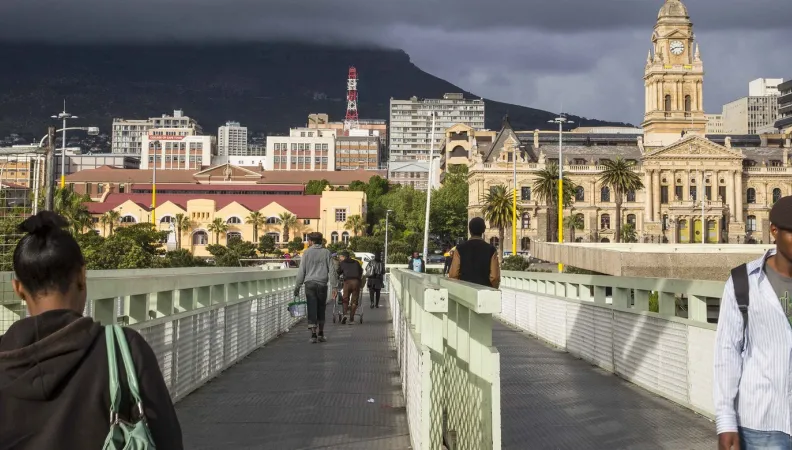Share the page
€300 Million for a Just Energy Transition in South Africa
Published on

The first installment of a series of loans and grants has just been delivered to South Africa. It’s part of the Just Energy Transition Partnership (JETP) entered into at last year’s COP26 in Glasgow, Scotland by France, Germany, the United Kingdom, the US, the European Union and South Africa. The aim is to prevent the country’s reduction in coal use from exacerbating inequalities.
The partnership’s first tangible accomplishment was formalized in November 2022 at the COP27 in Sharm el-Sheikh, Egypt. France and Germany each pledged €300 million in public policy loans to South Africa via their respective public development banks: AFD and KfW.
Paid directly to the South African Ministry of Finance, this financing aims to support the country’s move toward decarbonization, reducing its dependence on coal and implementing a just energy transition policy.
See also: The EU and AFD Group Work Together for a Just Transition in South Africa
This substantial financial support is the first milestone in a total package amounting to €8.3 billion, including €1 billion from France, which will be allocated over the next five years.
Financing local research
South Africa currently depends on this fossil fuel to produce the majority of its electricity. This industry generates 100,000 direct jobs and is the main economic activity of entire regions like Mpumalanga.
“Most countries in the world are trying to strike a balance between inevitable short-term trade-offs and the long-term prospects of a future in which nature and people can thrive,” says Audrey Rojkoff, AFD Regional Director for Southern Africa and Country Director for South Africa. “All our partners can make more progress by sharing their experience, and international institutions have an important role to play in facilitating dialogue.”
Along with this initial public policy loan from France to South Africa, grant support of up to €1.5 million will be provided and used to fund local research on the social impacts of the transition, possible options for converting coal-fired power plants, the potential for job creation and opportunities for raising climate finance.
Watch the video: Green Energy in South Africa
Reforms to be implemented
“The coal mining and transportation sector may lose jobs and income. People and regions will need support,” says Thomas Mélonio, Executive Director of Innovation, Strategy and Research at AFD.
This research builds on work already underway on these issues, mainly focused on improving the social and territorial targeting of public transition policy, not only to minimize vulnerabilities that may result from the gradual decarbonization of the South African economy, but also to reduce the structural inequalities that characterize its society.
Vulnerabilities and opportunities stemming from the transition can be identified by analyzing the local labor market and renewable energy value chains, with a view to preparing the best possible support mechanisms. “This will involve fairly detailed work on social needs and financial means that will ultimately produce recommendations for political decision-makers developing reforms in South Africa,” says Thomas Mélonio. This research will also serve as a basis for designing future JETP partnerships in other countries.
AFD is already financing a program to support the development of public policy aimed at reducing inequalities in South Africa, one of the most unequal countries in the world. This program was launched in 2017, in conjunction with the Research Facility on Inequalities, and has led to the publication of a multi-dimensional diagnosis of inequality in the country.
